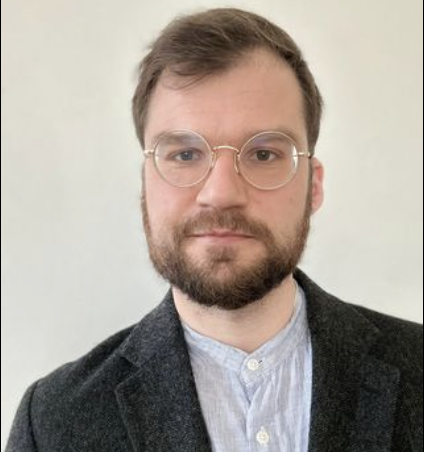My name is Max Noak. I am a Jungian psychotherapist.
Originally, I studied theology, religious studies and philosophy. Jungian approaches to working with the soul tend to value a broad source of references feeding into the work of transformation that this therapy ideally facilitates. I see my whole self being quietly engaged in working with patients. I greatly appreciate the generous space Jungian thinking makes for both individual history and personal fascinations.
A word about Jung
Jung was a pioneer of modern psychology and psychotherapy and a rich personality with a lot of light and shadow. His most important journey, however, was the journey within. We have a spectacular account of it in word and image in his Red Book: an account of his journey into a life of individual and collective significance.
Jung realised that each human carries the dignity and importance of the whole. He knew that by overcoming our own splits we add to the healing of the world. Most importantly, he knew that it is only you who can go on the journey for yourself. Following Jung will not do.
As a Jungian practitioner, I am registered as a psychodynamic psychotherapist with the British Psychoanalytic Council. The word 'psychodynamic' itself gives a clue about the nature of the work. 'Psychodynamic' translated into plain English means 'soul-powered', psychotherapy means 'soul-healing'. This means that I risk the work because I trust that our psyches have internal dynamics that organically drive a meaningful process. Chaos brings forth cosmos. This happens in a highly individual way and at a very personal pace.
Don't let potentially glib or soppy associations to the word soul deceive you. Our soul is a force of nature, highly authentic and not a bit interested in cliché, stereotype or social pressure. 'Psyche' may sound medical and academic in ways that alienates us from the archaic force that our soul really is.
For some the 'soul-powered soul-healing' involves new dreams. For others is involves delving into personal histories and early wounds. Some people will explore both their dreams and histories in their everyday lives and relationships. It may be exciting, frustrating and at times rather pedestrian.
Who is Jungian therapy for?
This work may be right for you if you can let yourself in for its exploratory nature, the way it values the unknown and eschews attempts to fix or follow handbooks. It may not move in linear ways, but in creative circles.
In my practice, I work with people of all walks of life who feel a genuine desire and willingness to change, who will give the life in them permission to transform them and invite me as a companion into the highs and lows of becoming themselves.
I recall work with artists who were oppressed by internal and external censors. Gently exploring their stories, dreams and tending their early wounds made them grow into proud creatives.
I have accompanied people who were traumatised by their first relations. Their journey led from feeling beleaguered to greater generosity and joy with themselves and others.
There were patients who had lost parts of themselves to the splits in their families and cultures and on the winding routes of migration. I have witnessed their slow but rewarding path to recovering wholeness and the audacity to grow roots in new soil.
What Jungian psychotherapy can give you
Engaging with the therapy process will give you a chance to be seen like no one has ever seen you. Psychotherapy may unlock people who are stuck and help them overcome barriers of upbringing and culture.
I have undergone a rigorous and demanding clinical training. That is special about analytic trainings is that I have been on the same journey as my patients for many years. I know what it is like on this couch.
My training and experience explored both early and developmental trauma as well as the spiritual impulses that drive us forward and inward.
You will find that Jungians may be brave enough to share or show more of themselves if it feels right in the evolving process of the therapy.
In psychotherapy, I offer my time and professional attention to those who will engage in the work with a sense of collaboration and partnership. I stress the word partnership; the collaborative nature of the treatment is crucially important. I don't guide, I accompany.
This type of psychotherapy is for the curious; it may take time and patience and is greatly aided by regularity and commitment.
Max Noak is a verified Welldoing Jungian therapist in East London and online

